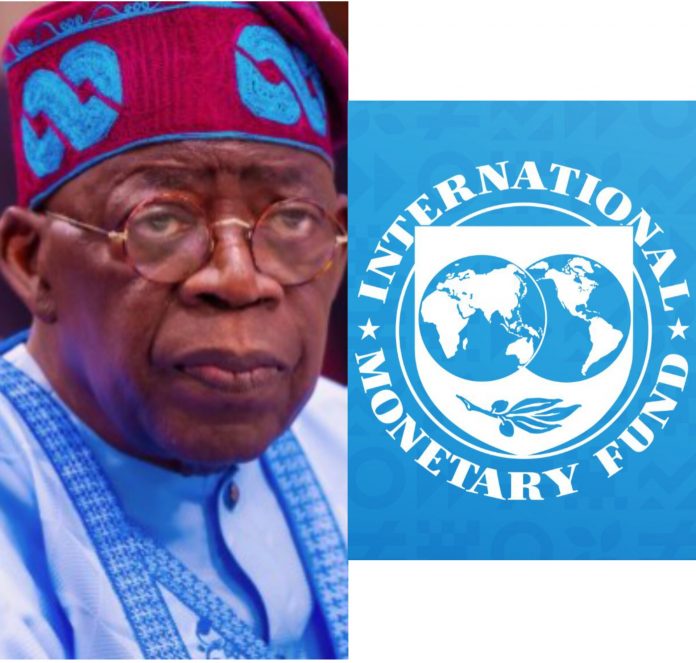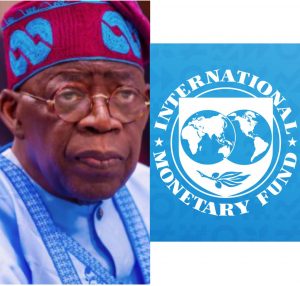A collage of President Bola Tinubu and IMF logo
By Akeem Atoyebi
The latest outlook report of the International Monetary Fund, IMF, for sub-Sahara Africa has indicated that the broad-based economic reforms embarked upon by the current federal government are still struggling for a positive impact, 18 months after commencement.
Also, stakeholders in the food sector have indicated that the reforms have failed to uplift the necessities of life in the country, and that hunger is biting harder.
The IMF report rolled out yesterday acknowledged a few countries that have recorded little success in reforms but Nigeria was not mentioned, rather it mentioned Nigeria amongst those failing to meet desired results.
According to the report, the average economic growth rate in the region would remain at 3.6 per cent for the full year 2024, but Nigeria’s growth rate, put at 3.19 per cent, is below this average.
Presenting the report at the Lagos Business School, LBS, IMF Deputy Director, Catherine Patillo, indicated that macroeconomic imbalances in the region have started reducing with notable improvements in some countries, but she excluded Nigeria in the good news.
She stated: ‘‘More than two-thirds of countries have undertaken fiscal consolidation. With the median primary balance is expected to narrow by 0.7 percentage points alone in 2024. And these have included notable improvements in Cote d’Ivoire, Ghana, and Zambia, among others’’.
Further on the improving macroeconomic situations in the region, Patillo stated: ‘‘On the imbalances side, median inflation has declined in many countries. And it’s already within or below the target band in about half the countries’’.
But contrary to this position, Nigeria’s inflation which had slowed down in July and August returned to uptrend in September 2024 with further rise in October while analysts predict that November and December would sustain the uptrend.
Also at current 33.8 percent, Nigeria’s inflation rate is largely off the 21 percent target for 2024.
The IMF report actually mentioned Nigeria as one of the countries that have been unable to tame inflation.
She stated: ‘‘Inflation is still in double digits in almost one-third of countries, including Angola, Ethiopia, and Nigeria, and above target in almost half of the region, particularly where monetary policy is not anchored by exchange rate pegs’’.
Patillo further said that exchange rate was improving across most countries in the region. She stated: ‘‘Looking further at exchange rates, we do see that foreign exchange pressures have largely abated since the end of 2023’’.
But Nigeria has recorded the worse exchange rate instability and local currency depreciation so far this year.
The IMF report also highlighted the impact of debt burden on fiscal stability listing Nigeria amongst the suffering countries.
It stated: ‘‘Debt service capacity remains low by historical standards. In almost one-quarter of countries, interest payments exceed 20 percent of revenues, a threshold statistically associated with a high probability of fiscal stress. And rising debt service burdens are already having a significant impact on the resources available for development spending.


